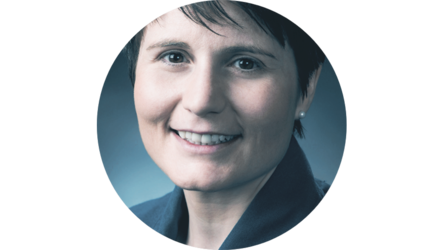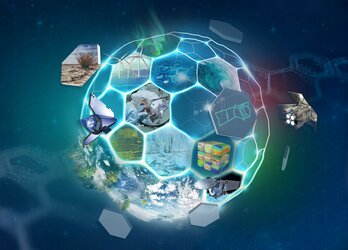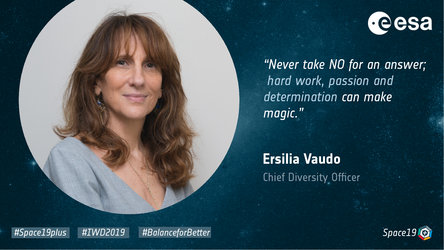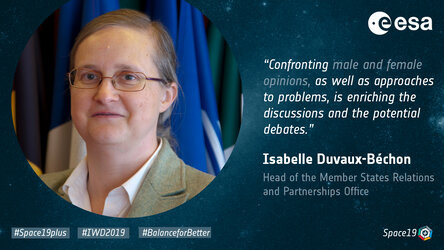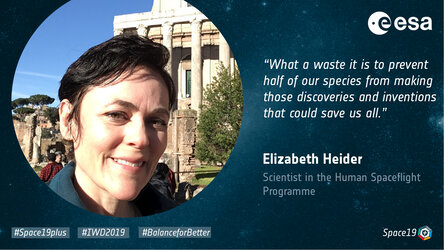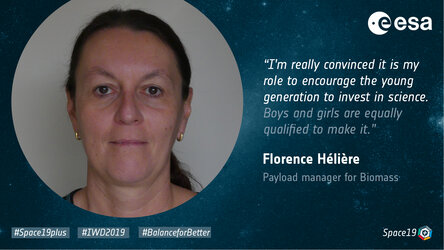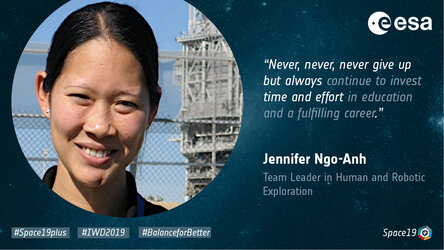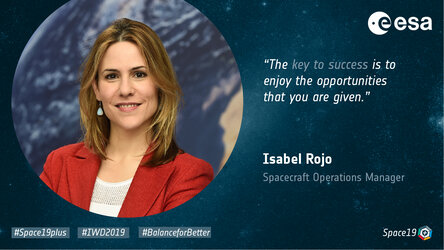Sabine Ansel, ESA Payload Integration Manager
Please give a brief description of your duties at ESA.
I am a Payload Integration Manager for the Directorate of Human and Robotic Exploration Programmes. My role is to send scientific experiments, technical demonstrators and educational experiments to the International Space Station. I mostly provide support to national agencies, universities or internal ESA departments to bring their idea from the initial concept to a real activity performed on the ISS and we sometimes have something sent back to Earth. I have been working at ESA-ESTEC as a contractor for the past 11 years.
What inspired you to pursue a career in science and engineering and what motivated you to join ESA specifically?
I wanted to become an engineer to work in the aerospace domain: aircraft and spacecraft used to transport people from one place to another. As I am not a US national, ESA was the next best place after NASA to work in this field.
Did you encounter gender barriers on your way to becoming a scientist / engineer?
In my French engineering school, only 10–12% of the students were girls. This percentage dropped even more in my original domain, which was software engineering. However, I never encountered barriers in becoming an engineer.
What progress have you seen in addressing the gender imbalance in your profession through equal-opportunity measures in recent years?
ESA has an equal-opportunity recruitment policy. However, sometimes when a woman is selected instead of a man, the rumour goes that she was only selected because she was a woman and not because of her competence. It is really hard for women in the workplace as they continually have to prove that they are competent for this specific job. This is not the case for men. There is still a gender imbalance as a whole. In some meetings, I am the only woman present.
What are, in your view, three measures that could make a difference in supporting a work-life balance and at the same time equal opportunities for career perspectives.
Working from home at least once a week is a great option. This means less travelling time and less disruption, allowing one to focus more on certain tasks.
Have the possibility to work flexible hours outside the core working hours and telework the rest of the day, if necessary.
What advice would you give to a girl or young woman who is considering a career in science and engineering?
Go for it! There is room for everyone and every skill. The more diverse the skills are in a team, the better the outcomes on the projects.















 Germany
Germany
 Austria
Austria
 Belgium
Belgium
 Denmark
Denmark
 Spain
Spain
 Estonia
Estonia
 Finland
Finland
 France
France
 Greece
Greece
 Hungary
Hungary
 Ireland
Ireland
 Italy
Italy
 Luxembourg
Luxembourg
 Norway
Norway
 The Netherlands
The Netherlands
 Poland
Poland
 Portugal
Portugal
 Czechia
Czechia
 Romania
Romania
 United Kingdom
United Kingdom
 Slovenia
Slovenia
 Sweden
Sweden
 Switzerland
Switzerland



